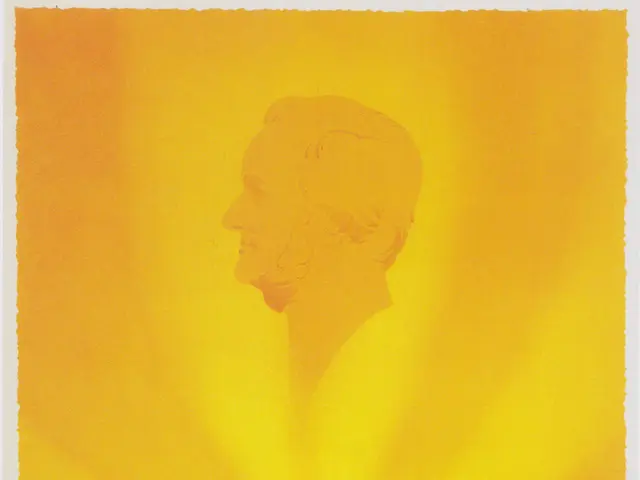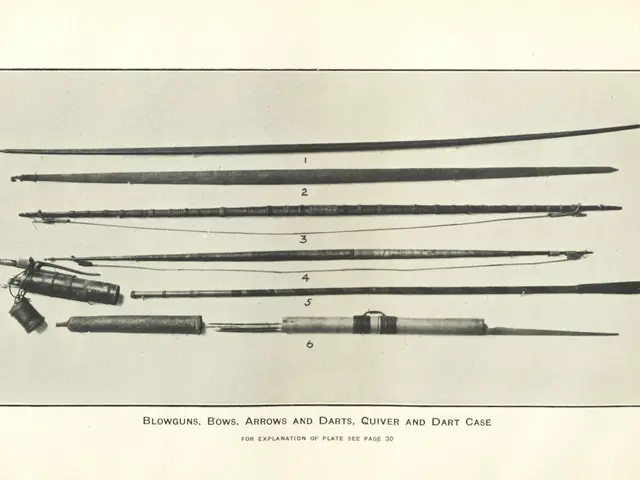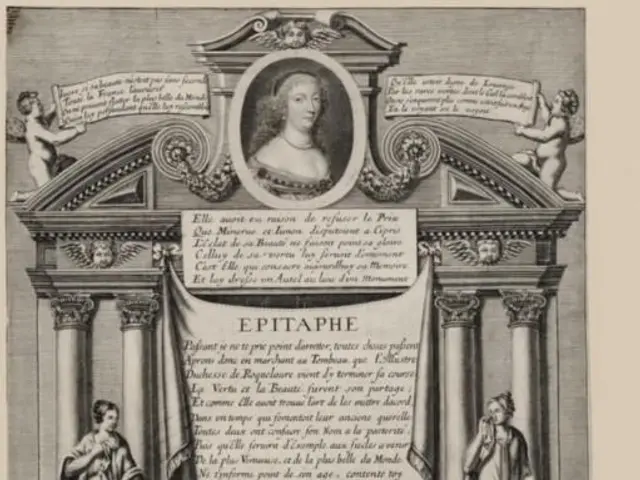Clues from a 19th CenturyPhilosopher Pointing Towards Picard's 24th Century Voyage
Captain Jean-Luc Picard's personal quest for truth in 'Star Trek: Picard'
First published on August 31, 2020
In the latest installment of the Star Trek franchise, "Star Trek: Picard," Captain Jean-Luc Picard grapples with existential issues and personal transformation. This introspective exploration of Picard's character is marked by a deep dive into the works of philosopher Søren Kierkegaard, as revealed through subtle references in the series.
Since his introduction in "Star Trek: The Next Generation," Picard has overseen numerous missions in the spirit of truth, whether scientific, historical, or personal. In the episode "The First Duty," Picard emphasized this principle when he rebuked a young Cadet Crusher, echoing his unwavering commitment to the truth throughout his career.
However, in "Star Trek: Picard," Picard finds himself lost and unable to flourish, seemingly disconnected from his duty to personal truth. As we follow him on a mission to find the sister of a mysterious woman who shakes his reality, Picard embarks on a journey to rediscover himself, ultimately revealing insights into the nature of despair and selfhood according to Kierkegaard's philosophy.
Despair, as outlined in Kierkegaard's "The Sickness Unto Death," occurs when an individual cannot be oneself or is in anguish over their identity. Picard's despondency is evident in his declaration, "I haven't been living. I've been waiting to die." This psychological torment limits Picard's ability to connect with others and thrive in his new role.
As we witness Picard's struggle to reclaim his identity, we are introduced to various elements of Kierkegaard's thought. In the episode "Broken Pieces," we learn of Captain Rios' connection to Kierkegaard's ideas through his collection of the philosopher's books. The presence of Kierkegaard's work emphasizes the layered journey of self-discovery that both Picard and Rios embark upon throughout the series.
By seeking to move beyond despair and reshape his identity, Picard demonstrates a commitment to overcoming existential obstacles, embodying Kierkegaard's view of the individual's resolve to become themselves. As Picard forges a new crew, faces personal challenges, and encounters familiar faces from his past, his pursuit of self-discovery unfolds, ultimately propelling him toward a more authentic existence.
The current pandemic has, in many ways, paralleled society's shared experience of loss and upheaval, it may serve as a reminder for viewers to pause, reflect, and consider their own personal growth and identity in the face of adversity. In the spirit of Jean-Luc Picard, we too can find strength in the journey of self-discovery and the tools of openness, optimism, and curiosity to cultivate a brighter future.
Michael D. Stark (he/him) holds a Ph.D. in Philosophy and is an expert on existentialism and Kierkegaard. Recent works focus on the intersection of philosophy and popular culture, including Star Trek.
"Star Trek: Picard" streams on Paramount+ and Prime Video outside the U.S. and Canada, and on Bell Media's CTV Sci-Fi Channel and Crave in Canada.
Stay tuned to our platform for more updates on "Star Trek: Picard" and other series. Follow our platform on TikTok, Instagram, Facebook, YouTube, and Twitter for the latest news and updates.
- The character development in 'Star Trek: Picard' delves deep into philosopher Søren Kierkegaard's works, offering insights on despair and selfhood, particularly relevant to Captain Jean-Luc Picard as he navigates his personal challenges.
- In 'Star Trek: Picard', viewers are introduced to various characters such as Captain Rios who share an affinity for Kierkegaard's ideas, contributing to the series' exploration of identity and self-discovery.
- Curiosity and openness are key elements in the 'movies-and-tv' genre, particularly in the 'sci-fi-and-fantasy' subcategory, where stories like 'Star Trek: Picard' engage audiences in thought-provoking discussions on philosophy and personal growth, paralleling real-life experiences of loss and transformation.








